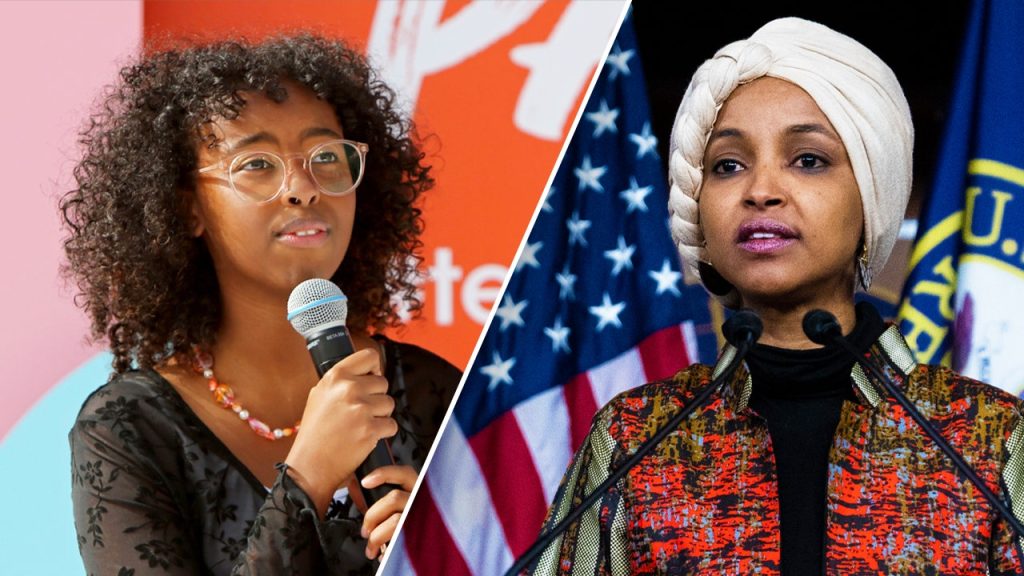U.S. Rep. Ilhan Omar expressed pride in her daughter, Isra Hirsi, after she was arrested during an anti-Israel protest in New York City. Isra has a history of activism, which includes organizing a school walkout and leading a climate rally in the nation’s Capitol. She was among over 100 people arrested at Columbia University for participating in the protest. Isra stated that she was suspended from Barnard College for standing in solidarity with Palestinians facing what she described as genocide. She and other activists are demanding divestment from companies complicit in genocide, transparency in Columbia’s investments, and full amnesty for all students facing repression.
The anti-Israel protest at Columbia University began with dozens of activists setting up an encampment on the main lawn to protest Israel’s actions against Hamas. The school requested the New York Police Department to clear out the encampment, citing violations of rules and policies by the protesters. Columbia President Minouche Shafik referred to the situation as “extraordinary” and defended the decision to take action against the protesters. Isra Hirsi and others involved in the protest stated that they would continue to stand firm until their demands are met, emphasizing the need for accountability and justice in the face of what they perceive as systemic oppression.
Isra Hirsi’s arrest at the anti-Israel protest sparked controversy and criticism from various parties. Fellow ‘Squad’ member Ilhan Omar defended Isra’s activism, highlighting the importance of speaking out against injustices and using Constitutional rights to advocate for change. Isra’s suspension from Barnard College raised questions about freedom of speech on college campuses and the consequences of engaging in political activism. The issue of antisemitism on college campuses was also raised during a hearing in Washington where Omar questioned Columbia President Minouche Shafik, underscoring the complexities of balancing free speech and respect for diverse viewpoints.
The situation involving Isra Hirsi’s arrest and suspension at Columbia University reflects broader debates about the Israeli-Palestinian conflict, freedom of speech, and activism on college campuses. The response from school administrators, law enforcement, and political figures like Ilhan Omar sheds light on the complexities of addressing contentious issues in a polarized society. The demands of the activists at the Gaza Solidarity Encampment at Columbia University highlight the need for transparency, accountability, and justice in the face of systemic oppression and violence. The controversy surrounding Isra Hirsi’s arrest underscores the challenges faced by young activists when advocating for social change and the importance of standing firm in the face of adversity.
Overall, the incident involving Isra Hirsi’s arrest at an anti-Israel protest raises questions about the role of political activism in shaping societal norms, challenging authorities, and advocating for marginalized communities. The response from various stakeholders, including lawmakers, school administrators, and activists, illustrates the complex dynamics of addressing contentious issues like the Israeli-Palestinian conflict. Isra’s suspension from Barnard College and subsequent activism at the Gaza Solidarity Encampment at Columbia University highlight the challenges faced by young activists in navigating the complexities of political engagement and advocating for justice in a polarized society. The incident serves as a reminder of the importance of upholding constitutional rights, promoting dialogue, and standing firm in the face of opposition when advocating for social change.


